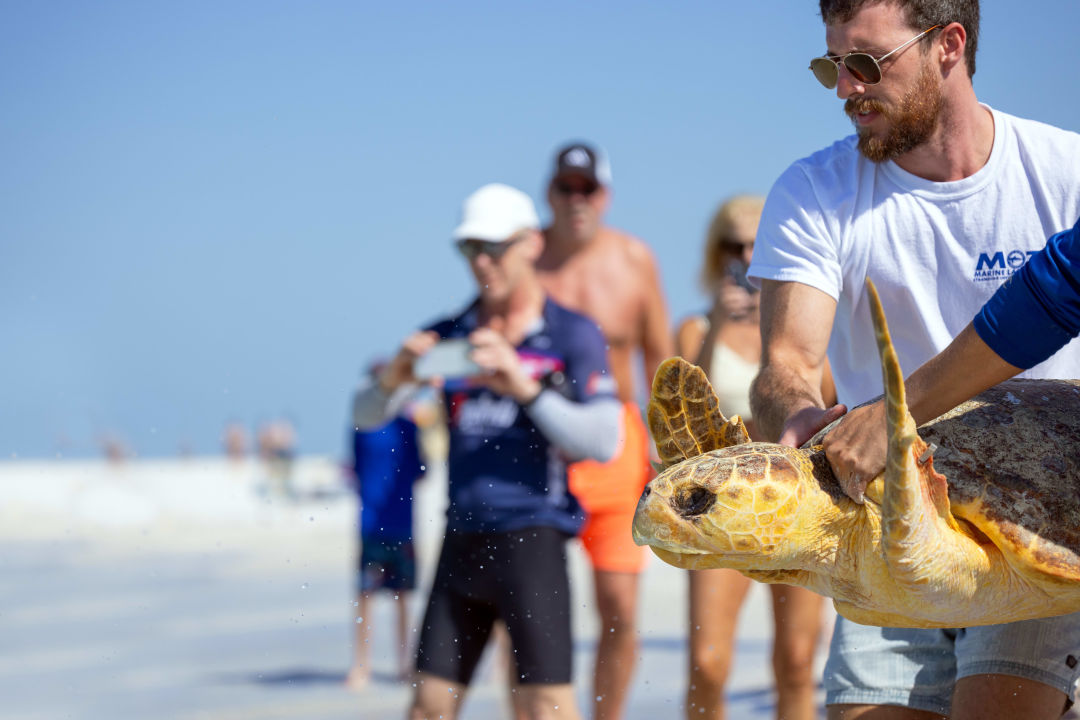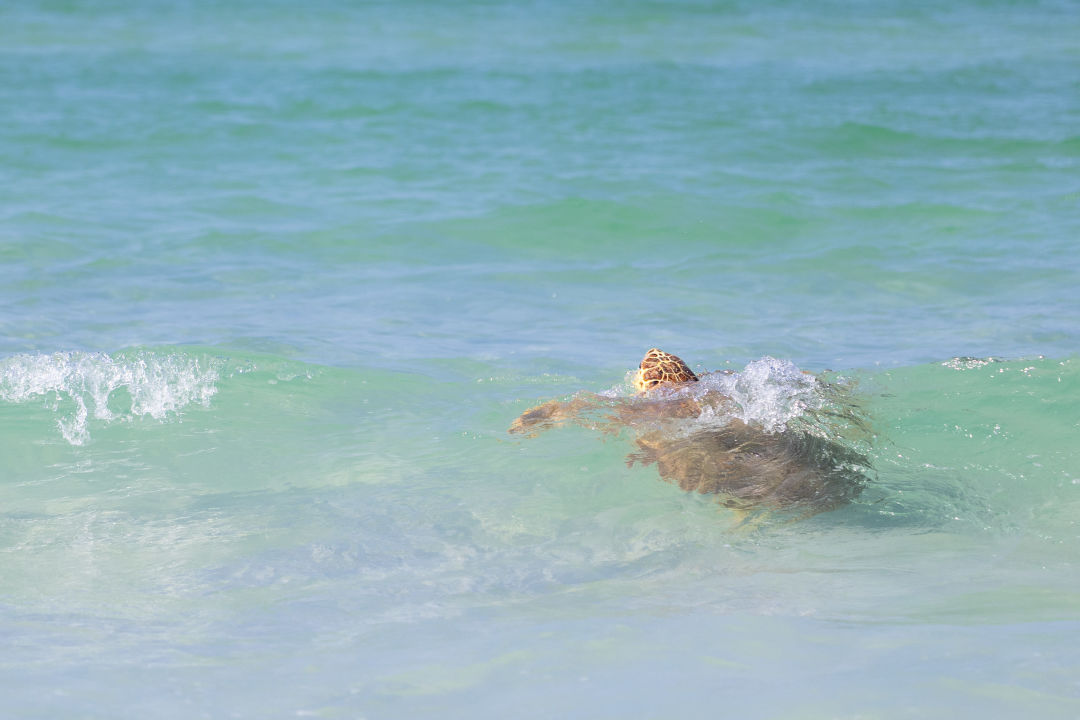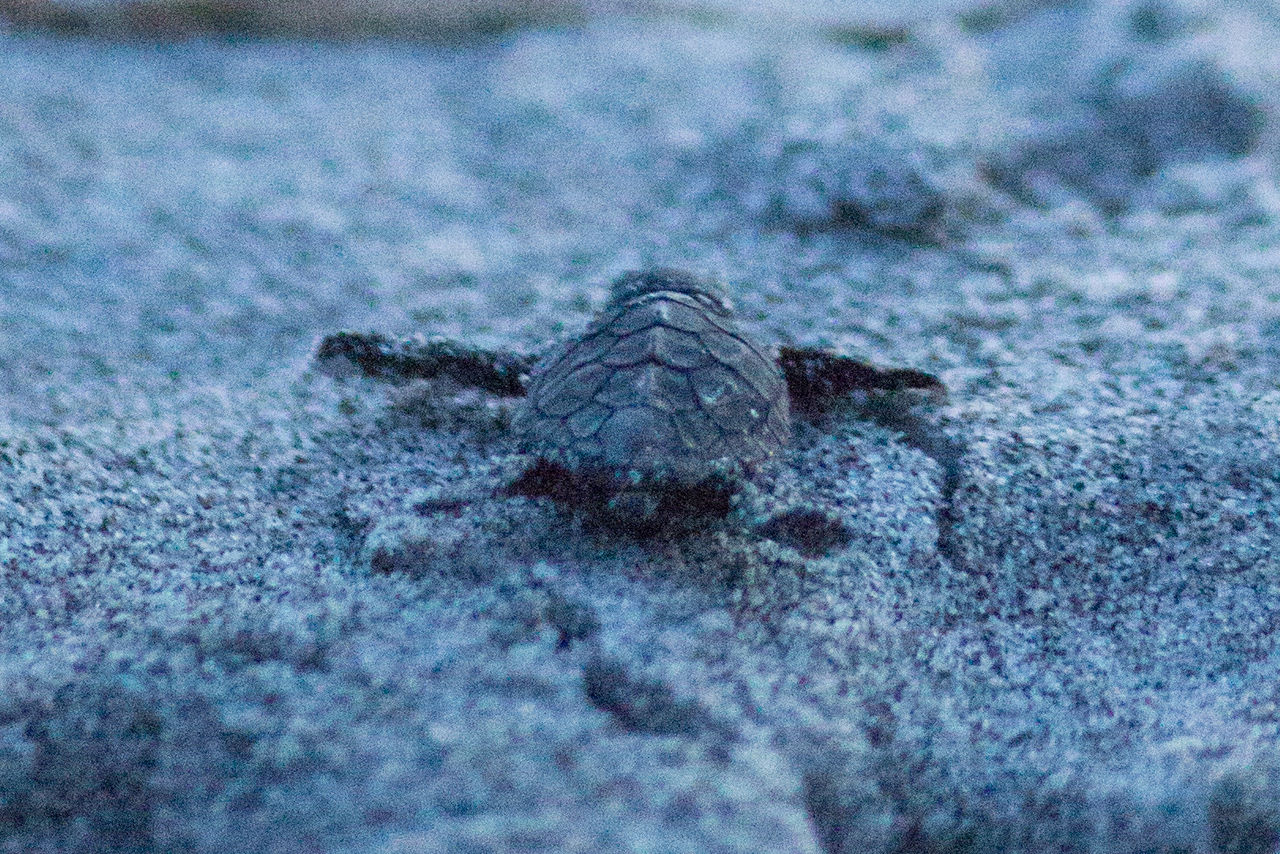Mote Releases Two Loggerhead Sea Turtles Following Rehabilitation for Red Tide Toxicity

Image: Hayley Rutger
This morning, Mote Marine Laboratory & Aquarium released two sub-adult loggerhead sea turtles—nicknamed “Grimm" and "Monique"—back into the Gulf following successful rehabilitation at its Sea Turtle Rehabilitation Hospital.
The release took place off Lido Beach, with Grimm being lowered into the waves by Mote staff and Monique crawling into the surf from the beach.

Image: Hayley Rutger
Both turtles were suspected to be impacted by red tide and were admitted to Mote’s hospital showing signs of toxin exposure. After receiving expert medical treatment and monitoring, they were medically cleared for release.
Red tide can produce toxins harmful to marine life, including sea turtles. Grimm was admitted on February 16, 2025, when the turtle was found floating near Sanibel in Lee County. Showing signs consistent with red tide toxicity, Grimm was transported to Mote for emergency care. Just a few weeks later, on March 6, 2025, Monique was discovered washed ashore on South Siesta Key’s Turtle Beach an also suspected to be suffering from red tide exposure. They both made full recoveries.
“Watching these turtles return to the Gulf is the most rewarding part of what we do,” says Lynne Byrd, Mote's rehabilitation and medical care manager. “Monique and Grimm’s journeys remind us why this work matters—every turtle released is another step toward a healthier ocean.”

Image: Hayley Rutger
Both turtles were released with Passive Integrated Transponder (PIT) tags—similar to a pet microchip—that will help researchers identify them if they are encountered again in the future.
Mote’s Sea Turtle Rehabilitation Hospital has admitted 950 sick and injured sea turtles since 1995. Its Sea Turtle Rehabilitation Hospital has treated all five species found in the Gulf, including turtles that were sickened during the 2010 Deepwater Horizon oil spill.
For more information about how to support sea turtle conservation or report a stranded turtle, click here. Within Sarasota or Manatee County waters, if you see a stranded or dead sea turtle or marine mammal please call Mote's Stranding Investigations Program, a 24-hour response service, at 888-345-2335. If you see a stranded manatee or sea turtle in state waters or a stranded or of Sarasota or Manatee counties, please call the FWC Wildlife Alert hotline at 1 (888) 404-3922. If you see a stranded dolphin or whale anywhere outside Sarasota or Manatee Counties, please call NOAA Fisheries at 1 (877) 433-8299.



